The business realm has experienced an influx of new trends and developments over the past few years. Businesses in the digital age are looking for new technologies to help them thrive. Companies can incorporate disruptive technologies to make strategic decisions and implement new business models through digital transformation.
The most discussed technology in today’s business realm is “Blockchain.” Blockchain technology can transform industries and revolutionize several fields ranging from retail to healthcare.
One of the core technologies driving business transformation is Blockchain. Although Blockchain has gained a significant position in market transactions, it is often confused with terminology such as “bitcoin” and “cryptocurrency” and is used interchangeably.
Now, what is Blockchain? How can Blockchain affect business in the future? These questions, and many more, are probably encircling your brain. Read on to get the most straightforward answers to all your questions about Blockchain and its future.
WHAT IS BLOCKCHAIN?
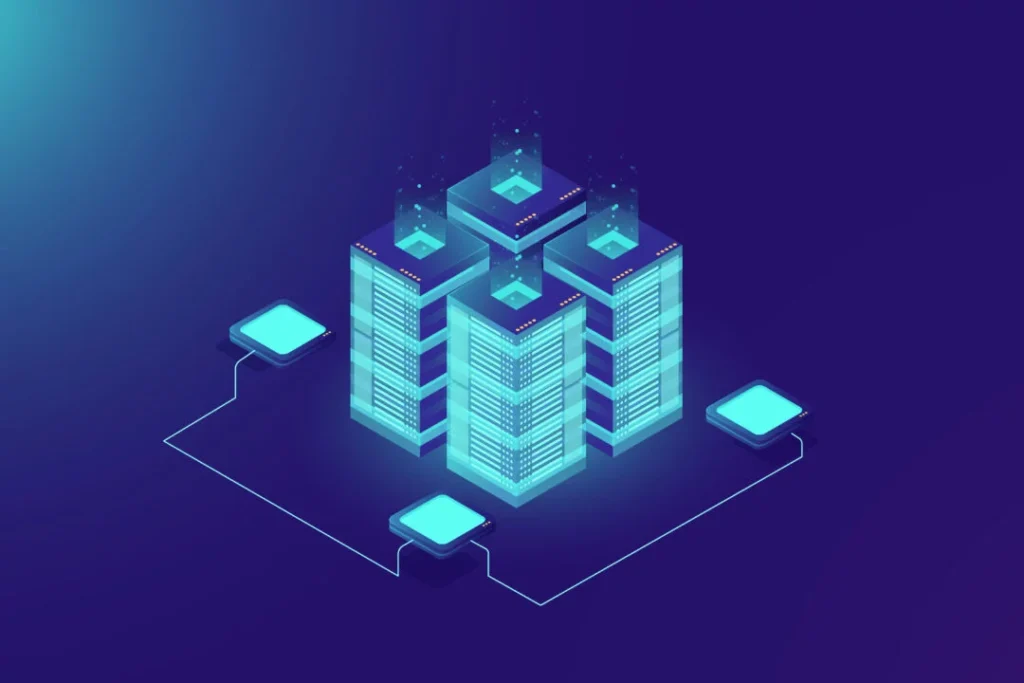
Blockchain is the spine of the digital cryptocurrency, “Bitcoin.” A blockchain is a decentralized dataset, a digitally distributed ledger that multiple users can access. Blockchains log, process, and verify every transaction using cryptography, making them secure, permanent, and transparent.
Confused by the technical terminology? Let’s make it easier to understand! Think of Blockchain as a database containing the records of all transactions or digital events carried out among the participants who will verify these transactions. While you might be educating yourself about Blockchain for the first time, you have heard about it several times without knowing it. How? Well, the biggest and most famous example of Blockchain is Bitcoin, a term I am sure you all are familiar with.
CRITICAL ELEMENTS OF A BLOCKCHAIN
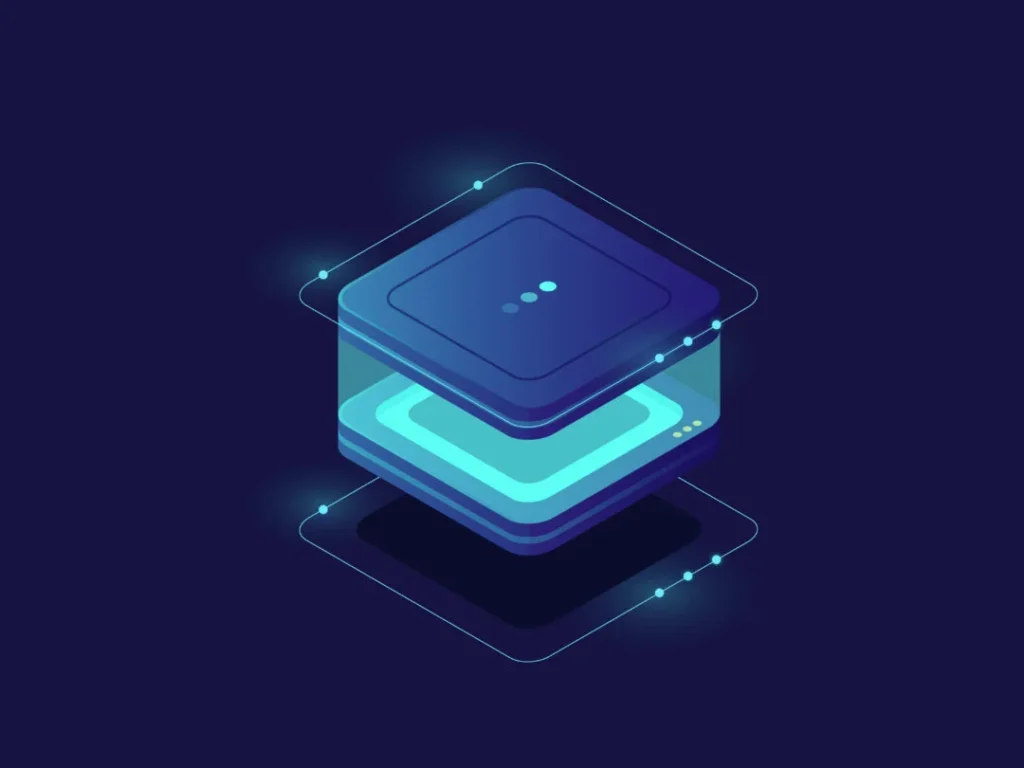
DISTRIBUTED LEDGER TECHNOLOGY
The distributed ledger and its immutable record of transactions are accessible to all network participants. Transactions are recorded only once with this shared ledger, hence eliminating the duplication of effort in traditional business networks.
SMART CONTRACTS
A set of rules, known as a smart contract, is stored on the Blockchain and executed automatically to speed up transactions. A smart contract can specify the terms for corporate bond transfers, the payment of travel insurance, and much more.
UNCHANGEABLE RECORDS
After a transaction has been recorded to the shared ledger, no participant can change or tamper with it. If an error is found in a transaction record, a new transaction must be added to correct the mistake, and both transactions are then visible.
THE WORKING OF A BLOCKCHAIN SYSTEM
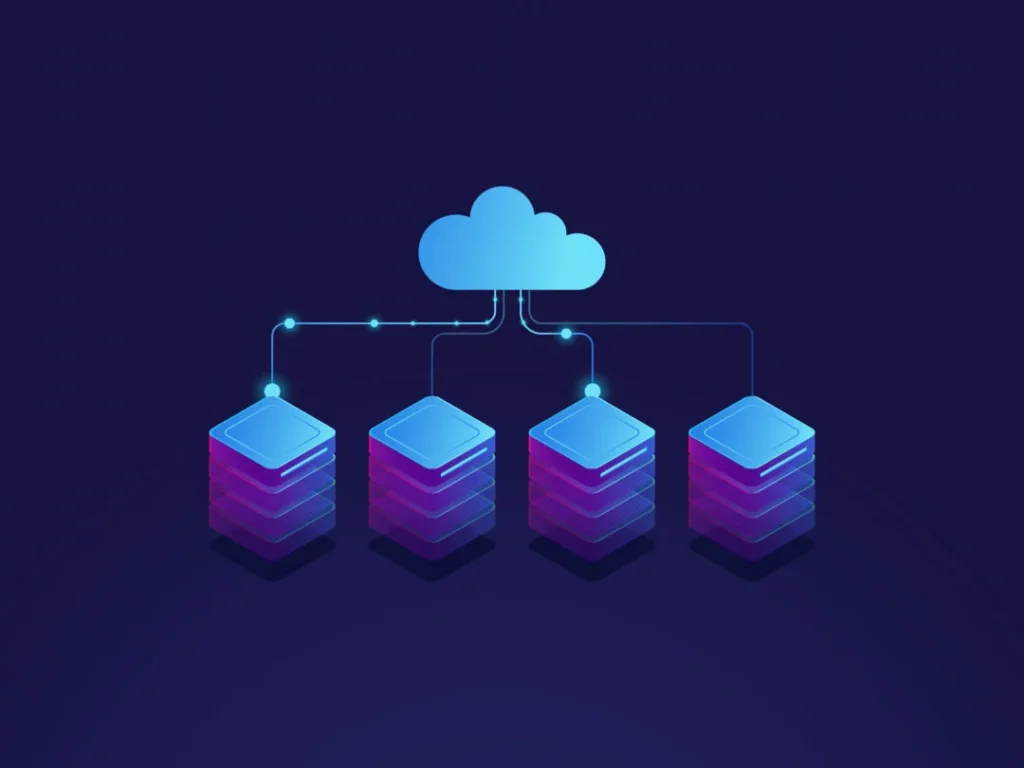
Now that you have become acquainted with Blockchain let us understand how it works. As you all know, Bitcoin is a significant name in the world of Blockchain and is used for digital trading assets over the internet. Instead of third-party trust, Bitcoin tends to use cryptographic proof to execute transactions digitally. Additionally, every transaction is guarded with a digital signature.
Dispersed Database: The server of a blockchain database is not central. It is distributed over numerous computers which are connected to the Blockchain.
Network of Nodes: A computer connected to the blockchain network is called a node. When these nodes connect to the Blockchain, a copy of the blockchain data gets downloaded into the system, and the node syncs with the most recent block of data on the Blockchain.
HOW HAVE THE TRADITIONAL BUSINESS METHODS TURNED ARCHAIC?

Traditional or fiat currency is money centralized, backed, and managed by a recognised government entity. Fiat money is a government-issued currency not backed by a commodity such as gold. Because central banks can control how much money is printed with fiat money, they have more control over the economy.
The traditional currency ruled over businesses for a long time, but it has now become an archaic currency model. This is due to an array of reasons. Let us take a look at some!
TIME-CONSUMING PROCEDURE

All processes function as distinct entities in a business operation. As a result, teams frequently search for, gather and analyse the same data to make decisions.
Furthermore, the teams must rely on various third-party intermediaries to properly operate their business processes, which increases the time and complexity of the methods.
LACK OF SECURITY

The traditional business ecosystem – the data and stakeholders – is unprepared for the far more intelligent and ever-expanding hacking world. As a result, data is only a few steps behind leak and hack.

INCREASED COST

All processes in traditional business models are carried out manually. Furthermore, various third parties are involved in each cycle, which not only requires additional money and time but also charges a high fee for their services. Overall, this results in a steady increase in the cost of a specific task.
ENHANCING BUSINESS MODELS WITH BLOCKCHAIN

Crypto aims to address some issues that fiat currency faces in foreign exchange, global payments, and other areas. With that said, no country or government entity backs or recognizes cryptocurrency. A cryptocurrency is a digital representation of value that uses cryptography and is built on a blockchain. Cryptocurrency can be used as a means of exchange, a unit of account, and a store of value.
Unlike fiat currency, most crypto is entirely decentralized and works on a peer-to-peer basis with no intermediary. Some cryptocurrencies run on private ledger systems managed by a single entity. Cryptocurrencies are generally only supported by the trust of their users.
SMART CONTRACTS
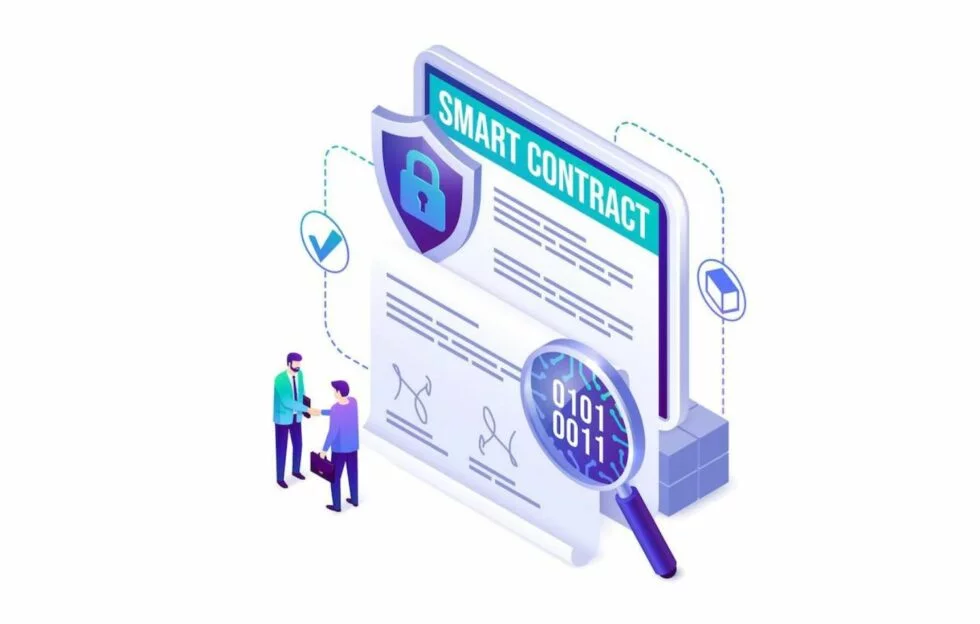
The most prominent use of Blockchain in business transformation is smart contracts.
Smart contracts are a type of self-executing contract in which all the conditions and terms of each of the parties are written down in the form of code. The codes are stored in a decentralized blockchain, making them indestructible.
Therefore, the related conditions are followed when the codes are completed. If one of the parties conflicts with the terms, the products or services are returned to the other party.
EASY PAYMENT
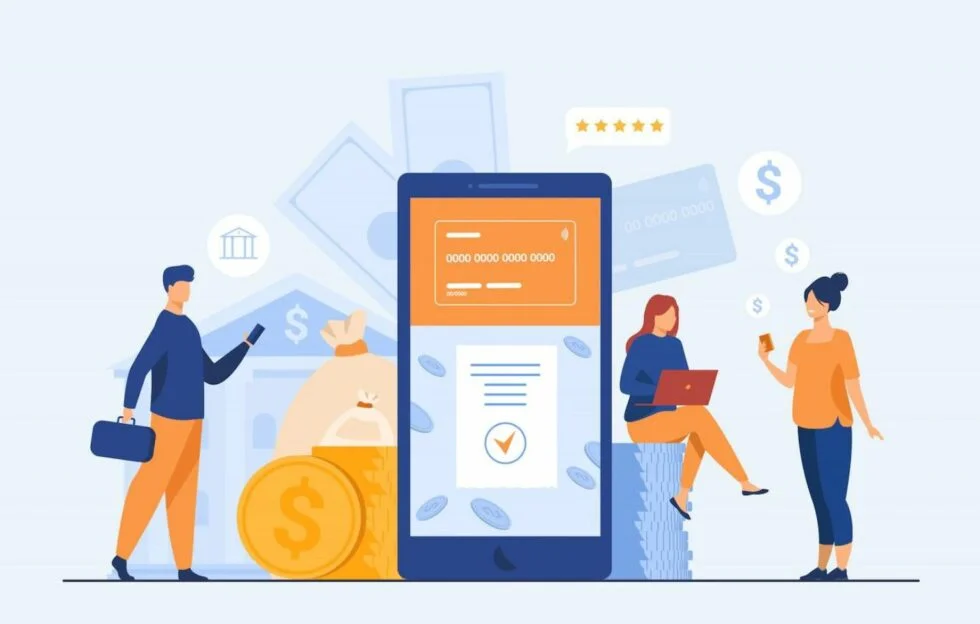
Integrating Blockchain and digital payment is one of the most obvious uses of decentralized blockchain networks. Through the elimination of third-party entities and documents like invoices and billing statements invoices, Blockchain has made it easier to transfer cash in establishments and startups.
EFFECTIVE MARKETING CAMPAIGNS

If you are focusing on Blockchain’s influence on the economy of business, it also enhances marketing campaigns.
These business models enable marketers to monitor customer information and their behaviour continuously, allowing them to develop effective campaigns and achieve more return on investment.
CAPITAL RAISING

Blockchain adoption in the business sector offers business owners an alternative to raising capital via initial token offerings (ITOs). ITOs are tokens that can be used on exchanges, where they can be traded without restriction. They are similar to equity or revenue shares of the regular business. Investors interested in investing can participate in the offer and receive digital tokens based on Blockchain from their company. The token could have benefits concerning the company’s products or services or be an investment in the business or project. ITOs are now an effective capital-raising method for all businesses due to their growing popularity.
IMPROVED SPEED AND HIGH EFFICIENCY
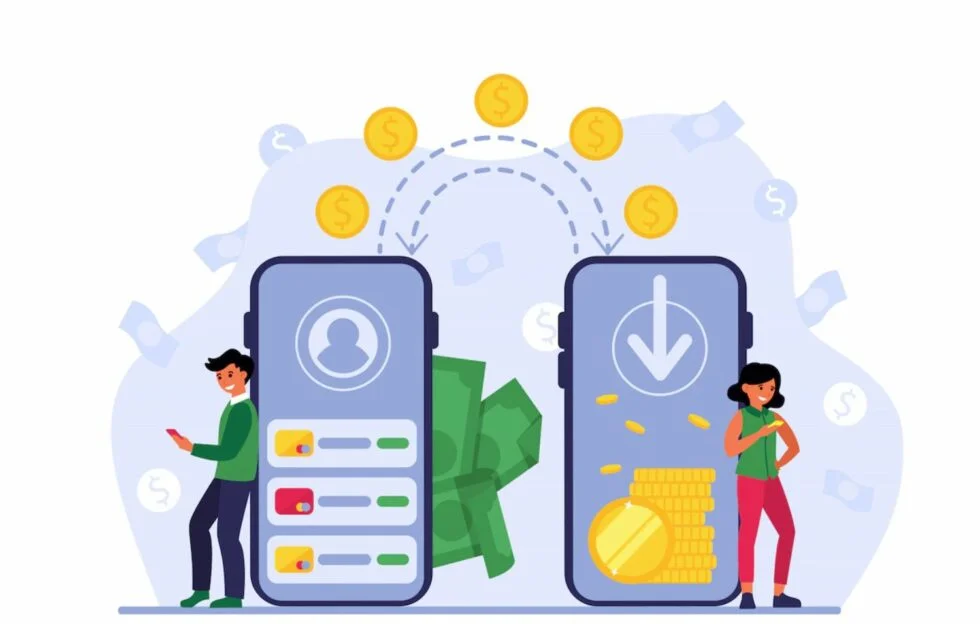
One of the most significant advantages of Blockchain technology is that it can solve time-consuming procedures and automate them to increase efficiency. Blockchain technology also eliminates human-generated mistakes with the aid of automation. In certain situations, Blockchain can handle a transaction in just a few seconds.
ROBUST SECURITY

Another essential function of blockchain technology in the business world is the introduction of security measures to protect the workplace.
Blockchain technology has the advantages of decentralization and transparency, allowing users of the network to keep and verify a portion or all the data stored in the network. This decentralization is the main distinction between traditional as well as Blockchain databases. The blockchain network also has more complex security concerns, which reduce the chance of cyber-attacks.
Furthermore, using it in the business world for digital identity provides users with the ability to safeguard and protect their identity and discover how they can access their data and make use of it for any use.
CUSTOMER ENGAGEMENT

Another significant function of Blockchain in business is opening new avenues for a wider public.
The integration of this technology with customer interaction brings about many opportunities and benefits. These can be achieved by choosing the best Blockchain-as-a-Service provider. This is a way to empower users to be in control of their data, adding the benefits that come from transparency in the company model facilitating rapid transactions and assisting marketers and entrepreneurs can identifying loyal customers and establishing confidence.
THE PROMINENCE OF BLOCKCHAIN IN VARIOUS FIELDS
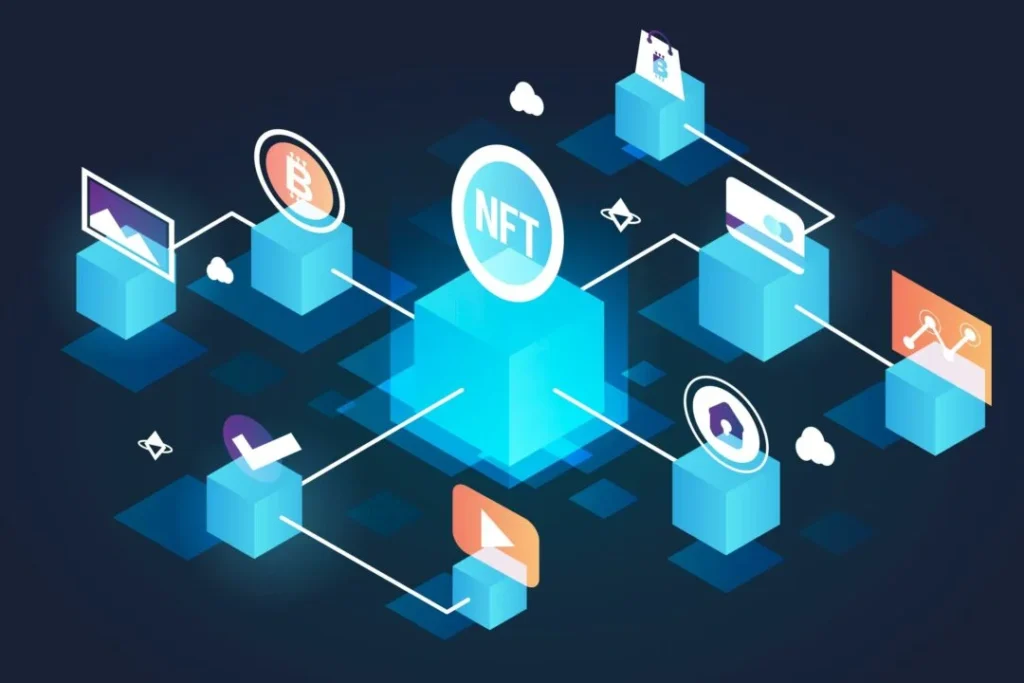
IN FINANCE
Blockchain technology offers hands-down effectiveness in the tracking of financial assets. It is an open ledger system that makes it much simpler to monitor and deal with the flow and outflow of cash.
IN CLOUD STORAGE
After the successful introduction of Blockchain technology in cloud storage, it will become more secure from attacks by cybercriminals. It helps prevent unauthorized alteration of data and encrypts data with cryptography.
IN CYBER SECURITY
As mentioned earlier, the Blockchain is built on ledger technology and decentralization principles, making it the perfect choice to strengthen cybersecurity. It assists in securing private messages by creating an integrated API framework, which eventually allows cross-messenger communication.
IN DIGITAL ADVERTISING
Digital advertising faces many issues now and then, such as bot traffic, opaqueness, the fraud of domains and the insufficiency of payment options. With blockchain technology, you can solve these issues and transactions of all kinds can be handled seamlessly.
NFTS AND BLOCKCHAIN
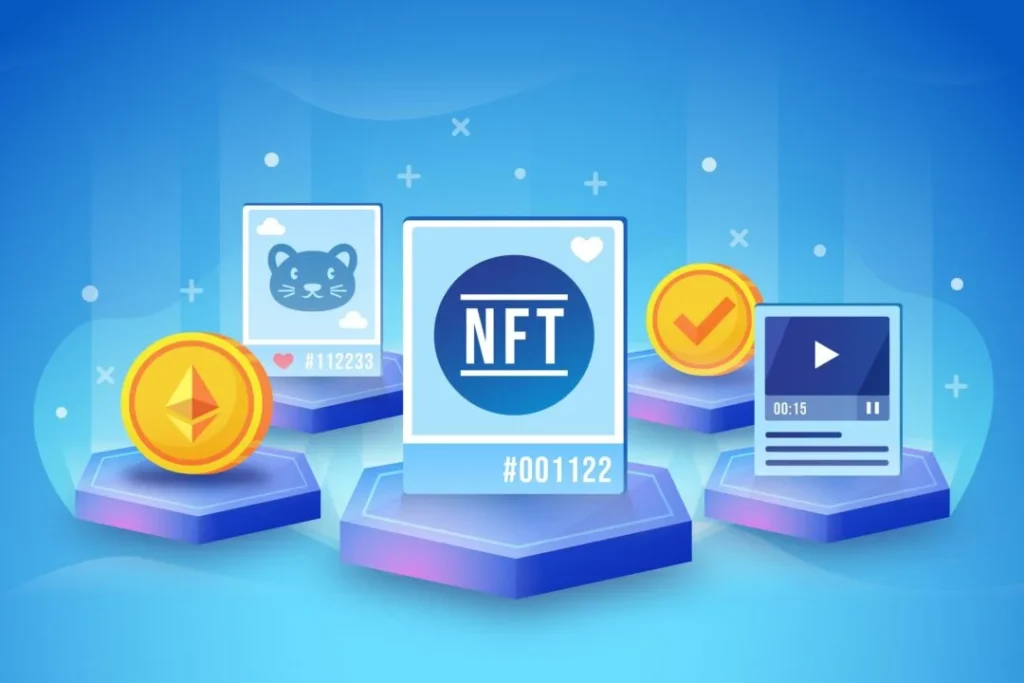
One term I am sure every layperson has come across is NFT. Now that you’ve understood the concept of blockchains, mastering NFTs will be easier.
NFT refers to non-fungible tokens (NFTs) are tokens that are usually created using the same kind of programming that is used to develop cryptography. In simple terms, these cryptographic assets are created using blockchain tech. They cannot be traded or traded in the same way as the other assets in cryptography.
Most NFTs are stored on the Ethereum cryptocurrency’s Blockchain, a public ledger that tracks transactions.
NFTs are individual tokens that contain essential information stored within them.
Since their value is mainly determined by markets and their demand, they can be bought and sold as other types of art.
The unique information of NFTs makes it simple to confirm and verify their ownership and exchange their tokens among owners.
THE FUTURE OF BLOCKCHAIN

Let’s talk about what’s to come from Blockchain technology. We must remember that it offers the potential to bring new concepts and ideas, integrate the existing ones, and make the most of everything happening on the market. For example, this system is revolutionizing the real estate market by allowing all parties to make transactions more secure and eliminating intermediaries.
LOGGING OUT
When you’re looking to upgrade your business’s current operations by harnessing Blockchain’s potential or beginning a new venture, It is recommended to consult the most reputable blockchain app development firm. This is because the technology is at a very early stage and could bring about a variety of difficulties and obstacles that are hard to overcome without prior knowledge. In essence, it is almost impossible to comprehend the significance of this technology in business processes without the help of experts. Remember this aspect.










 (03KEUPK4394K1ZN)
(03KEUPK4394K1ZN)